Are You Looking For a Solution To Your Pelvic Organ Prolapse Condition in Greer, South Carolina?
Conveniently located off Interstate 85 in South Carolina
980 Batesville Rd Suite C Greer, SC 29651
Free parking available
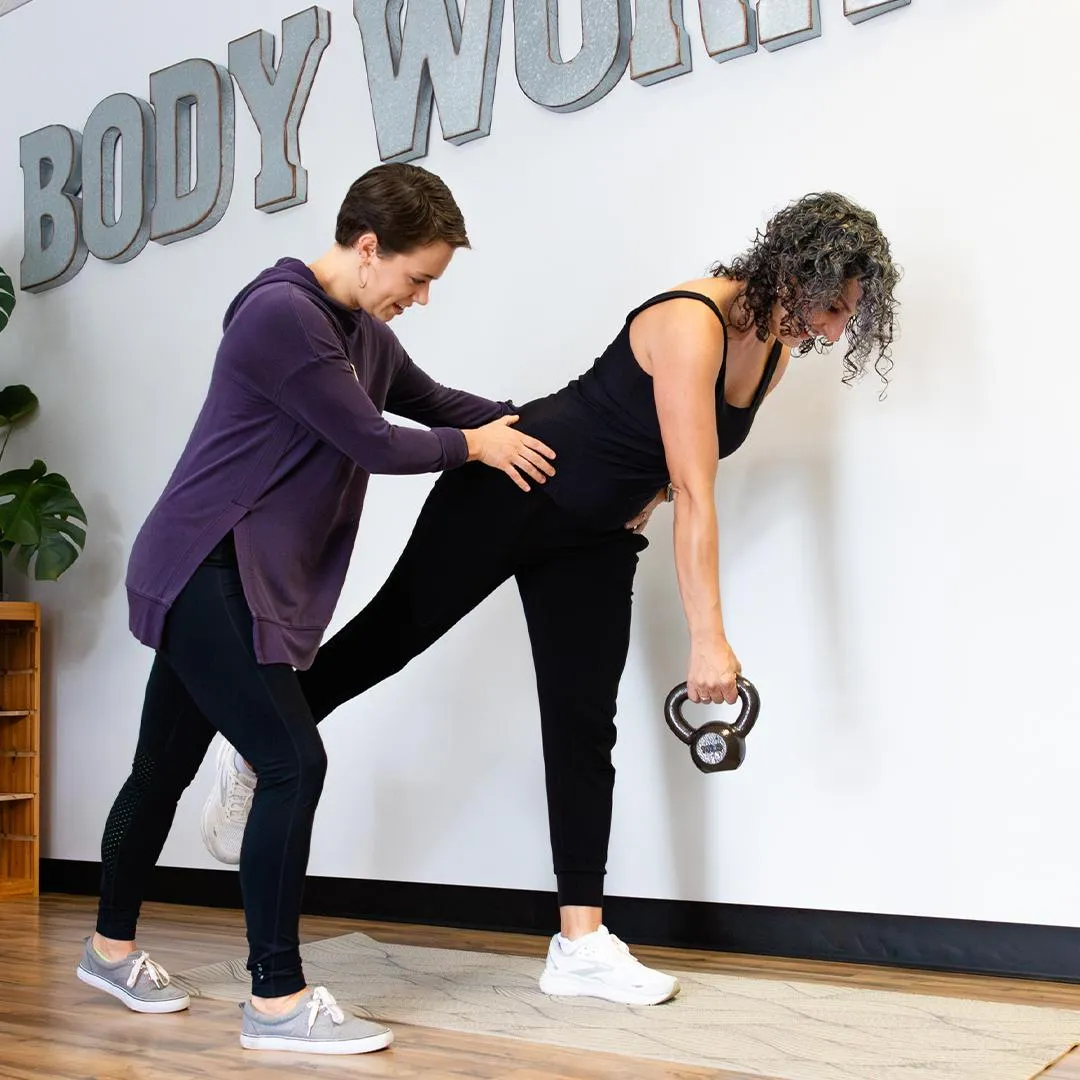
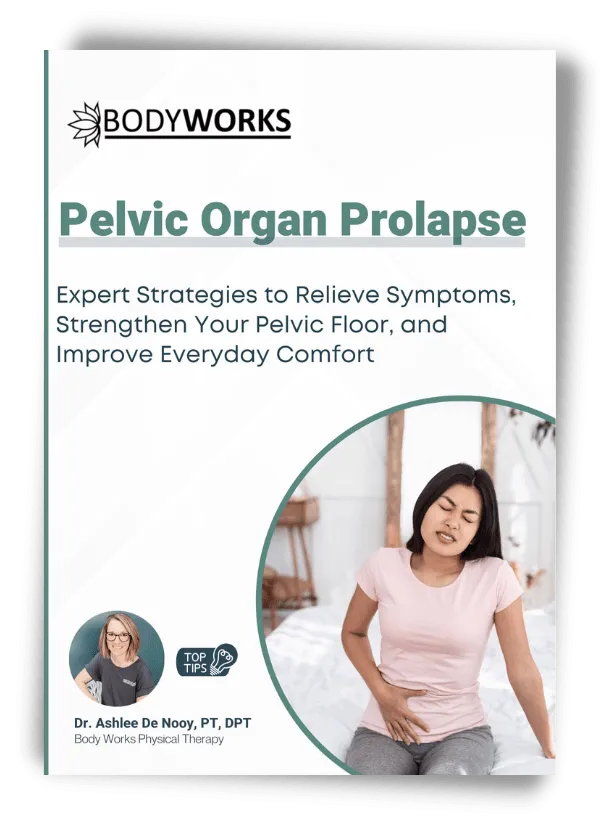
Download Your FREE Pelvic Organ Prolapse Information Pack:
“Top Tips To Relieve Pelvic Organ Prolapse Symptoms”
Click the button below to get your FREE Report
Does Any of This Sound Familiar?
Do you experience a sensation of heaviness or pressure in your pelvic area that persists throughout the day?
Are you struggling with lower back discomfort, urinary issues, or difficulty with bowel movements that make daily activities more challenging?
Do you feel self-conscious or uncomfortable with your body, especially when sitting or being active?
You've tried pelvic exercises but seen little to no improvement, or even worsening of your symptoms?
Are you tired of feeling discomfort or instability, especially when standing, lifting, or getting up from a seated position?
Have you been told that surgery is your only option, but you're looking for natural, non-invasive ways to manage your condition?
If you answered YES to any of the above, you're not alone. At Body Works Women's Health & Wellness we hear stories like this every single day. It may be time to explore how specialized therapy can help you manage your pelvic organ prolapse and regain confidence in your body.

Body Works Women's Health & Wellness
Greer, South Carolina
Still Feeling A Little Confused About Your Condition And Don't Know What To Do?
#1 Option (👍 most popular)

#2 Option - Send Us a Message

#3 Option - Book Appointment

What Causes Pelvic Organ Prolapse… And Why Isn’t it Resolving on its Own?
Pelvic Organ Prolapse (POP) occurs when pelvic organs shift downward, pressing on the vaginal wall, often due to factors like childbirth, hormonal changes, or long-term pressure on the pelvic floor. This shift weakens the support structures in the pelvis, impacting stability, comfort, and bodily function.
Common symptoms include a sensation of heaviness, pelvic pain, urinary or bowel difficulties, and difficulty with movements that engage the pelvic area. Without targeted treatment, weakened support can persist, making it harder to restore stability and alleviate symptoms over time.

Struggling with Pelvic Stability and Comfort?

Not sure who to ask?
Not sure what to do next?
Not sure who can help?
Please fill out the form below and chat with one of our team members about your right next step
The Body Works Women's Health & Wellness Pelvic Organ Prolapse Program – Support and Restore Your Pelvic Health
Step 1 - Comprehensive Evaluation and Diagnosis
Our first step is a detailed evaluation of your symptoms, medical history, and pelvic function.
This includes a thorough examination of your pelvic muscles and support structures to understand the severity of prolapse and its impact on your daily life.
We aim to gain a clear understanding of your condition so we can create a personalized treatment plan tailored to your needs.
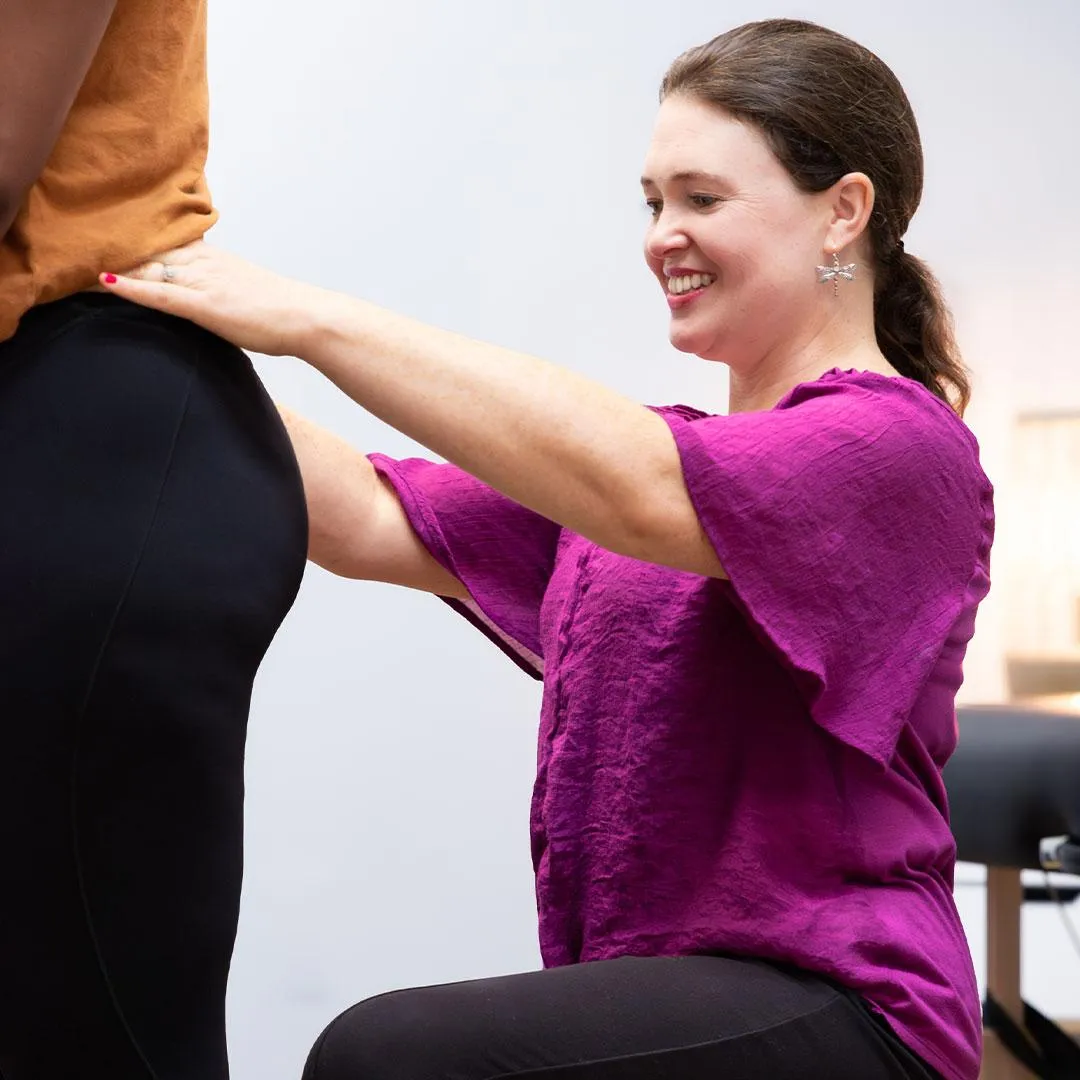
Step 2 - Customized Treatment Plan
Based on the evaluation, we develop a targeted treatment plan designed to support healing and improve pelvic stability.
This may involve pelvic floor exercises, lifestyle recommendations, body mechanics adjustments, and other non-invasive techniques specifically designed to address Pelvic Organ Prolapse.
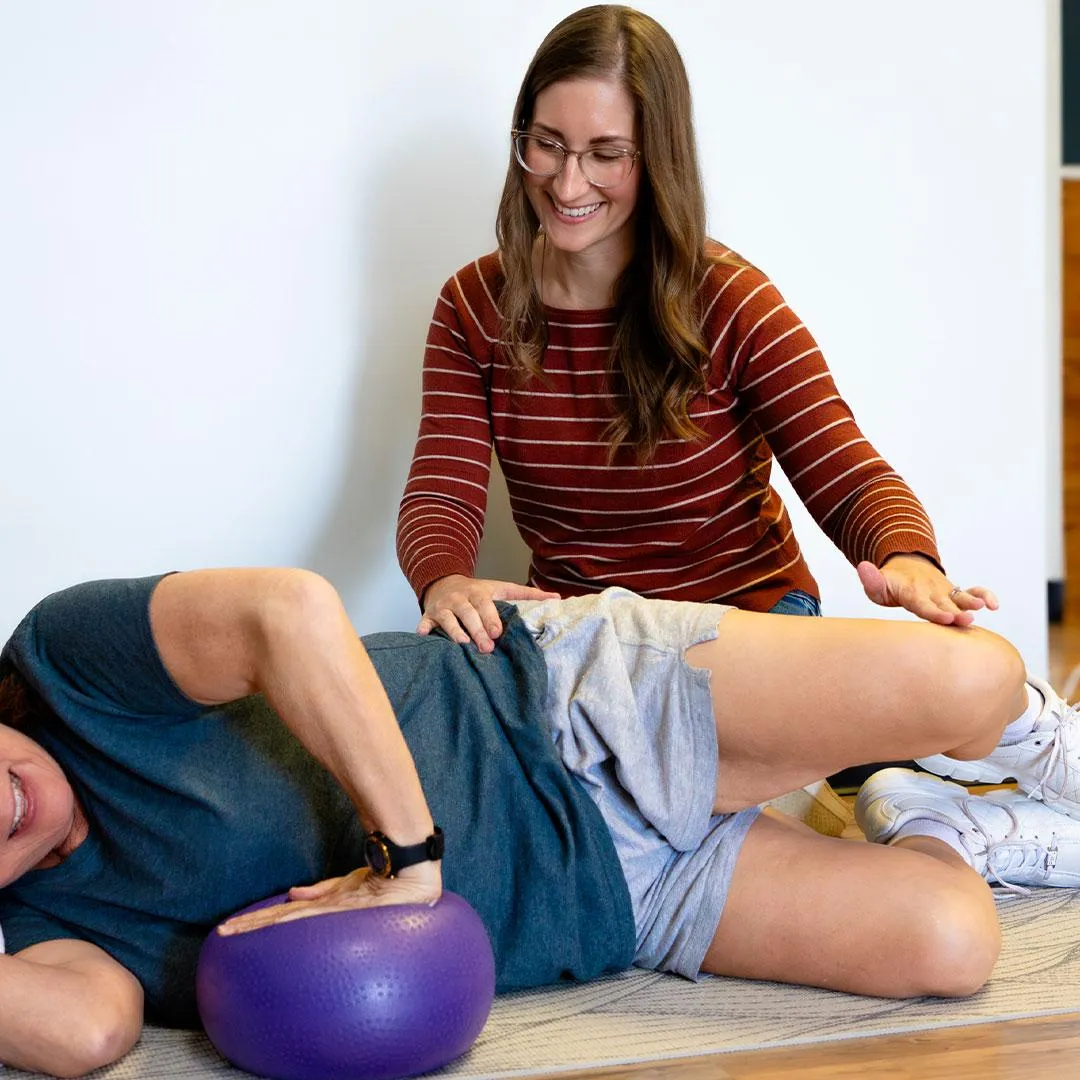
Step 3 - Long-Term Strength and Prevention
Our final step focuses on sustainable recovery and prevention. We guide you through gradual progressions to ensure your pelvic health remains strong over time, empowering you to move confidently and engage in activities comfortably.
We’ll also provide tools and guidance to prevent future issues, helping you maintain pelvic stability and live life without discomfort.

Is the Pelvic Organ Prolapse Recovery Program Right for You?
Our expert team of physical therapists at Body Works Women's Health & Wellness specializes in treating Pelvic Organ Prolapse, helping countless women regain strength and confidence in their bodies.
Here’s just a few ways our team can help you:
We can tell you on Day ONE what’s causing your prolapse, why it’s happening, and how to heal it.
We’ll quickly get to the root cause of your symptoms and provide a personalized plan—often within the first 20 minutes of your evaluation..
We can help you restore pelvic stability and comfort, allowing you to feel more energized and at ease in your daily activities.
We can help you avoid the need for surgery or other invasive treatments with effective, natural therapies.
We’ll keep you from unnecessary doctor’s visits and ineffective treatments, focusing on long-term recovery.
We’ll help you reclaim the comfort and confidence that prolapse may have taken away from your everyday life.
We can guide you to stronger, more functional pelvic support, allowing you to stay active and live life with confidence.
What's next? You've got a decision to make - another month gone by without solving your Pelvic Organ Prolapse problem, or are you ready to get back to doing the things you love?
Is Pelvic Organ Prolapse Limiting Your Life? Take Us Up on One of Our Free Options
Option #1 (👍 most popular)

Option #2


From Consultation to Treatment
What to Expect at Your First Visit to Body Works
We're excited to see you at your appointment! We want to make sure you feel comfortable and well-informed, so don't hesitate to ask us any questions about our treatments, our clinic, or even our payment options. Our goal is to help you get back to living your life free of pain, so let's work together to make that happen!
Discuss your story and health goals
Complete assessment
Discover your options
Start a custom treatment plan


Here's Why Over 1,000+ Women Choose Body Works Women's Health & Wellness

Specialised Expertise: Our clinic offers specialised care from highly-trained physical therapy in various fields like sports rehab and chronic pain management.
Comprehensive Approach: We provide holistic treatment plans combining manual therapy, exercises, and cutting-edge technology for a well-rounded approach.
Cutting-Edge Facilities: Equipped with state-of-the-art facilities and advanced equipment to support patients' recovery.
Proven Track Record: Our clinic's reputation is built on successful patient outcomes and positive feedback, fostering a supportive environment for rehabilitation.
Frequently Asked Questions About Pelvic Organ Prolapse
What is Pelvic Organ Prolapse (POP)?
Pelvic Organ Prolapse occurs when one or more of the pelvic organs (such as the bladder, uterus, or rectum) slip out of their normal position and press against the vaginal wall. This happens when the muscles and ligaments supporting the pelvic organs become weakened or stretched, often due to childbirth, menopause, or other factors that increase pressure on the pelvic area.
What are the symptoms of Pelvic Organ Prolapse?
Symptoms of Pelvic Organ Prolapse can vary but commonly include:
- A feeling of heaviness or pressure in the pelvic area
- A visible or felt bulge in the vaginal area
- Lower back discomfort
- Urinary incontinence or trouble emptying the bladder fully
- Difficulty with bowel movementsPain or discomfort during intercourse
What causes Pelvic Organ Prolapse?
Pelvic Organ Prolapse is often caused by weakened or damaged pelvic floor muscles and connective tissue.
Common causes and risk factors include:
- Childbirth, particularly with large babies or difficult deliveries
- Aging and menopause, due to decreased estrogen which weakens pelvic tissues
- Chronic constipation or straining
- Heavy lifting or intense physical activity
- Obesity, which increases pressure on the pelvic area
- Previous pelvic surgery, which can affect pelvic support structures
Is Pelvic Organ Prolapse common?
Yes, Pelvic Organ Prolapse is common, especially among women who have gone through childbirth and menopause. Studies show that nearly half of women over the age of 50 experience some degree of prolapse, though not all will have symptoms.
Can Pelvic Organ Prolapse get worse over time?
Yes, without intervention, Pelvic Organ Prolapse can progress as the support structures continue to weaken, especially with factors like straining, heavy lifting, or additional pregnancies. However, lifestyle adjustments, pelvic floor exercises, and targeted therapies can help slow or prevent worsening symptoms.
Do I need surgery to fix Pelvic Organ Prolapse?
Not necessarily. Many cases of Pelvic Organ Prolapse can be managed or improved through non-surgical methods, such as pelvic floor physical therapy, lifestyle changes, and the use of pessaries (a supportive device placed in the vagina). Surgery may be an option for severe cases or if conservative treatments aren’t effective.
What are the non-surgical treatment options for Pelvic Organ Prolapse?
Non-surgical options for Pelvic Organ Prolapse include:
Pelvic Floor Physical Therapy: Specific exercises to strengthen the pelvic muscles and improve support for the organs.
Pessary: A small device placed in the vagina to help support the pelvic organs and relieve pressure.
Lifestyle Modifications: Changes to reduce straining, improve posture, and support pelvic health, such as avoiding heavy lifting and managing constipation.
Hormone Therapy: In some cases, topical estrogen creams may be recommended to help strengthen vaginal tissues, especially after menopause.
Can Pelvic Organ Prolapse affect my ability to exercise?
Certain types of exercise, especially high-impact activities like running or heavy lifting, can exacerbate symptoms of prolapse. However, many low-impact exercises, including Pilates, yoga, and gentle core strengthening, can be beneficial when done under guidance. Pelvic floor physical therapists can help recommend safe exercises that improve strength without worsening symptoms.
How can I prevent Pelvic Organ Prolapse from worsening?
There are several ways to help prevent Pelvic Organ Prolapse from worsening:
Perform Pelvic Floor Exercises: Kegel exercises and other pelvic strengthening activities can support the pelvic organs.
Manage Constipation: Avoid straining during bowel movements by staying hydrated, eating fiber-rich foods, and considering stool softeners if necessary.
Avoid Heavy Lifting: Refrain from activities that put excessive pressure on the pelvic floor.
Maintain a Healthy Weight: Extra weight adds pressure to the pelvic area, so staying at a healthy weight can reduce risk.
Practice Good Posture: Sitting and standing with good posture reduces strain on the pelvic floor.
Can I still have sex if I have Pelvic Organ Prolapse?
Yes, most women with Pelvic Organ Prolapse can still have a satisfying sex life. However, some may experience discomfort or a sensation of pressure during intercourse. Pelvic floor therapy can often help alleviate discomfort, and open communication with your partner and healthcare provider can help you find solutions to stay comfortable.
Does Pelvic Organ Prolapse affect pregnancy?
If you’re planning to become pregnant, it’s best to discuss any existing prolapse with a healthcare provider. Pregnancy and childbirth can exacerbate prolapse, but with medical guidance, you can take steps to manage symptoms during and after pregnancy.
How can I get started with treatment for Pelvic Organ Prolapse?
The first step is usually to consult a pelvic floor physical therapist or women’s health specialist who can assess your condition and create a customized treatment plan. They will guide you on exercises, lifestyle changes, and other therapeutic options to manage your symptoms effectively.
Please note that these FAQs provide general information and should not replace personalised advice from a qualified healthcare professional. These answers can help address many concerns, but each woman's experience with Pelvic Organ Prolapse is unique, so discussing personal symptoms with a healthcare professional is always the best approach.
Frustrated With Your Pelvic Organ Prolapse Pain?

Not sure who to ask?
Not sure what to do next?
Not sure who can help?
Please fill out the form below and chat with one of our team members about your right next step

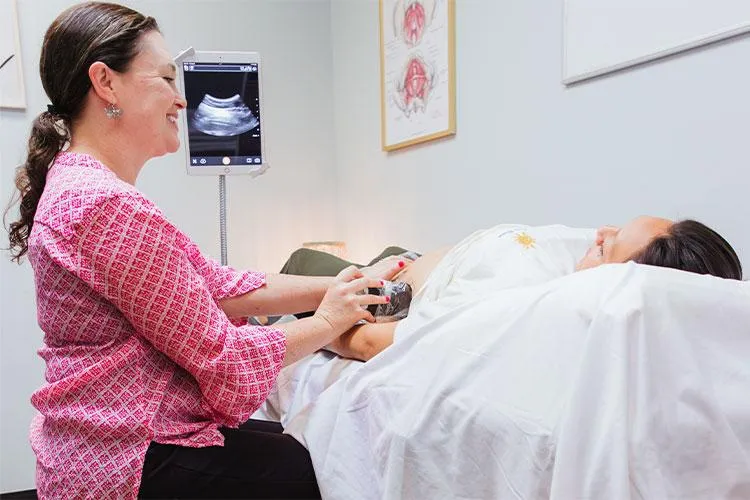
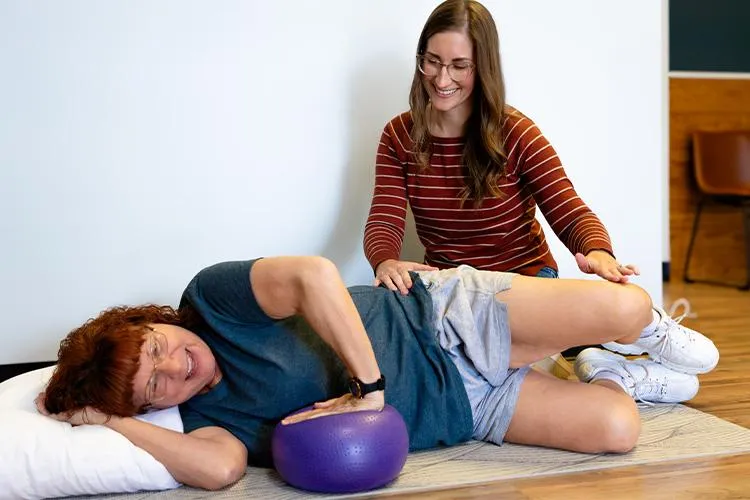
Where To Find Body Works Women's Health & Wellness

If you have any questions before scheduling an appointment or for general inquiries, please use the contact us button below. Our team will promptly reach out to assist you.
Opening Hours
Monday: 7:30am -6pm
Tuesday: 7:30am-4pm
Wednesday: 8am -5:30pm
Thursday: 7:30am - 3pm
Friday: 7:30am - 3pm
Saturday: Closed
Sunday: Closed

